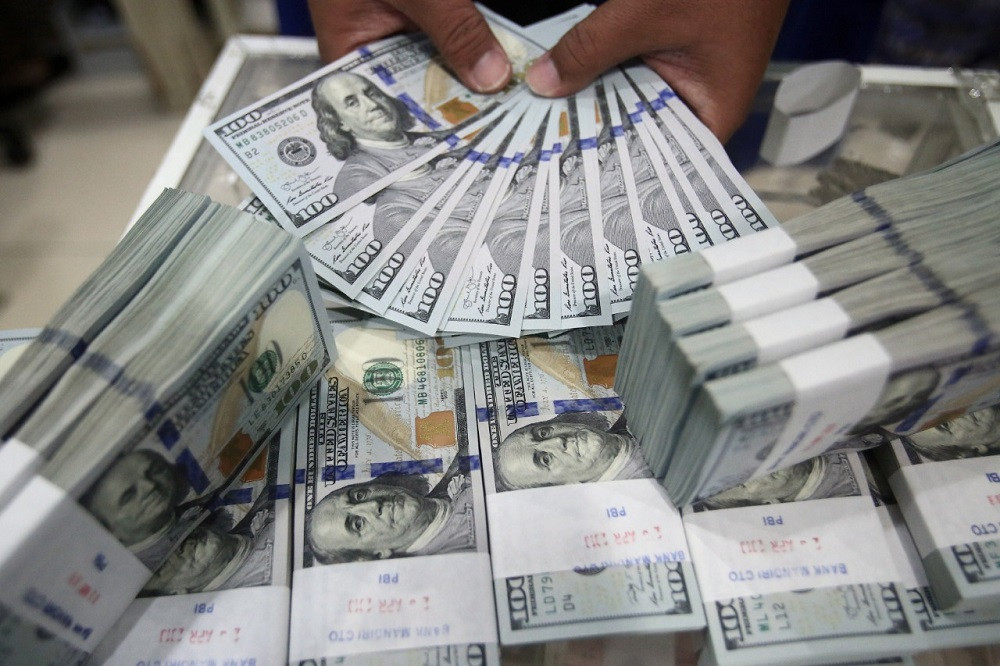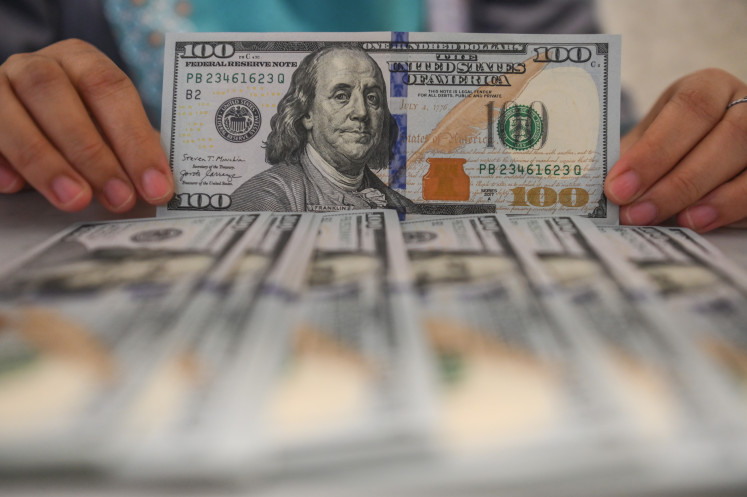Popular Reads
Top Results
Can't find what you're looking for?
View all search resultsPopular Reads
Top Results
Can't find what you're looking for?
View all search resultsOur economic resilience
One domestic downside risk is that the steady rise of inflation will weaken consumer purchasing power and eat away at private consumption.
Change text size
Gift Premium Articles
to Anyone
I
ndonesia’s 5.44 percent year-on-year (yoy) growth in the second quarter, up from 5 percent in the first quarter, should strengthen confidence in our post-pandemic recovery. The economy demonstrated its resilience despite the slowdown caused by large-scale pandemic-induced lockdowns in China, Indonesia’s largest trading partner.
The Ramadan and Idul Fitri festivities in April and May, which usually see the year’s highest rates of private consumption, appeared able to offset the negative impact of the one-month palm oil export ban in May and the slower pace of investment and government expenditures.
But the government should not allow the robust economic expansion to get to its head. It must continue advancing sorely needed reforms to maintain resilience amid global economic uncertainty and signs of a possible recession in the United States.
The main drivers of growth in the second quarter remained household consumption, which rose 5.5 percent yoy, up from the 4.3 percent yoy growth in the first quarter, and exports, bolstered by the commodities boom, which increased by almost 20 percent yoy, exceeding the 16.7 percent growth in the first quarter.
Despite the positive developments, certain headwinds could slow down the pace of recovery over the next six months. The first concern is about a possible recession, which would soften the commodities boom and reduce the huge windfall that the government has enjoyed over the past year. The US economy will likely be weighed down further by the Federal Reserve’s rate tightening over the coming quarters, while China has just started recovering from its massive lockdowns. Likewise, the European economy has a potentially problematic outlook as a result of the energy crisis.
One domestic downside risk is that the steady rise of inflation will weaken consumer purchasing power and eat away at private consumption. The country’s consumer price index rose by 4.9 percent yoy in July, up from the 4.3 percent rise in June, due to higher energy and food prices, even though core inflation remained below 3 percent.
Another domestic headwind is Bank Indonesia’s likely monetary tightening to curb inflation resulting from energy supply disruptions and volatile food prices. Since the windfall from the commodity boom will also likely decrease in the second half of the year, the government may have to reduce energy subsidies, allowing consumer fuel, LPG and electricity prices to move toward market rates.
BI needs to gradually hike its policy rate despite the fairly low core inflation in order to maintain a reasonable interest rate margin with the US following the Fed’s policy rate hikes over the past five months. Many analysts predict that BI, which has held its policy rate at 3.5 percent despite the 150-basis-point hike in the Fed rate in June and July to a range of 2.25-2.50 percent, will start turning away from its dovish stance in September and will raise its benchmark interest rate by at least 50 basis points by the end of the year.
This likely rate hike – though not as high as those of other countries, some of which have suffered hyperinflation due to heavy dependence on imported energy – will slightly dampen the pace of bank credit growth and consequently weaken domestic market demand and investment.











